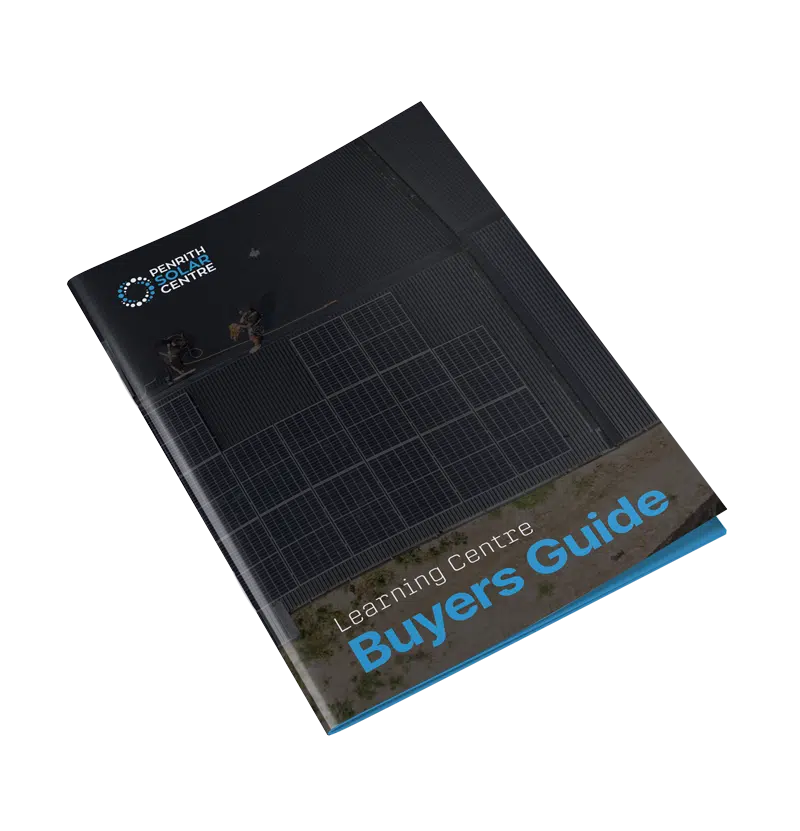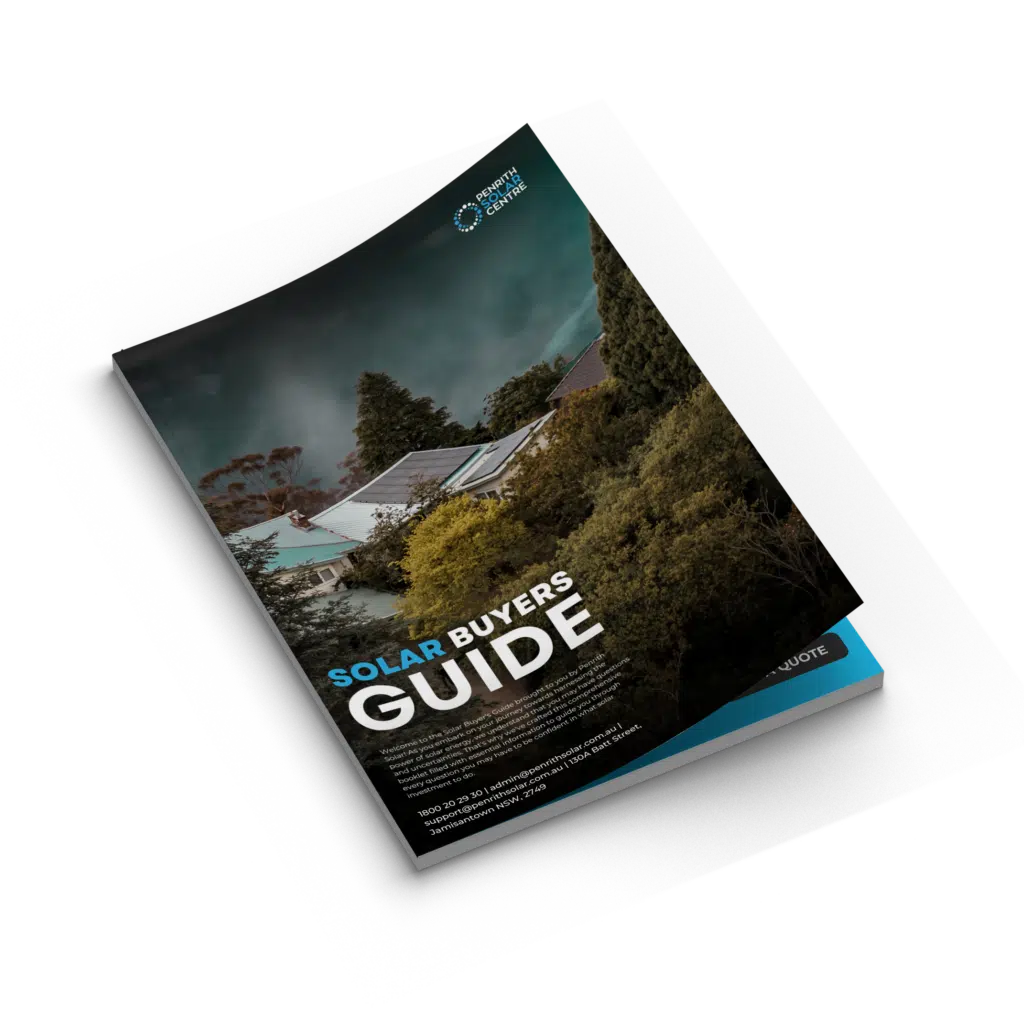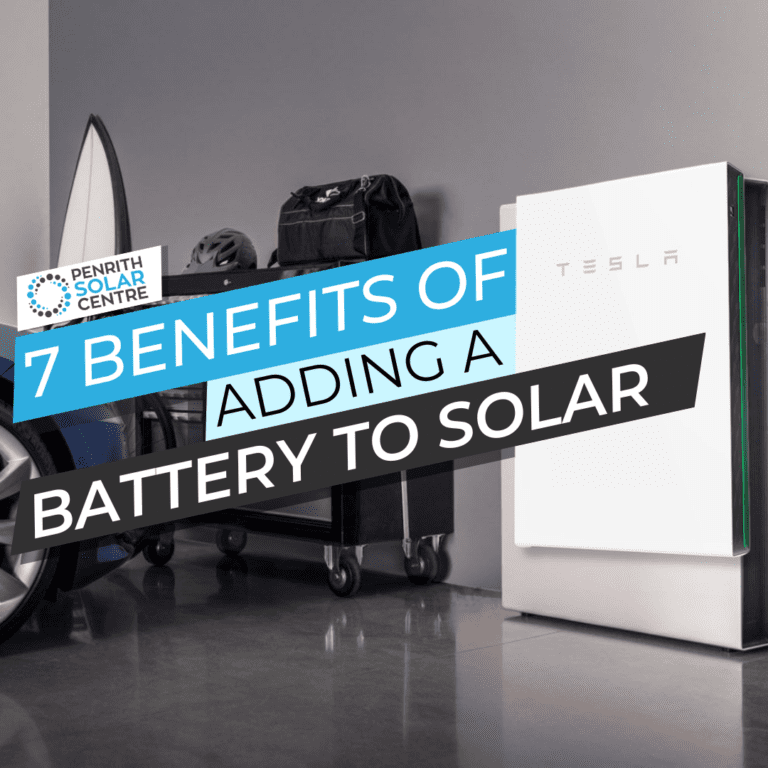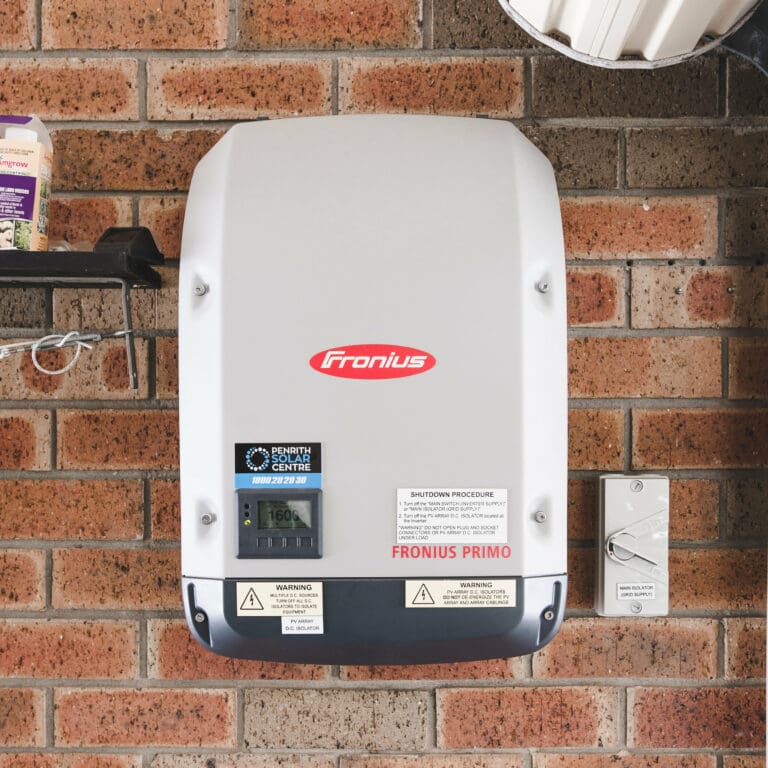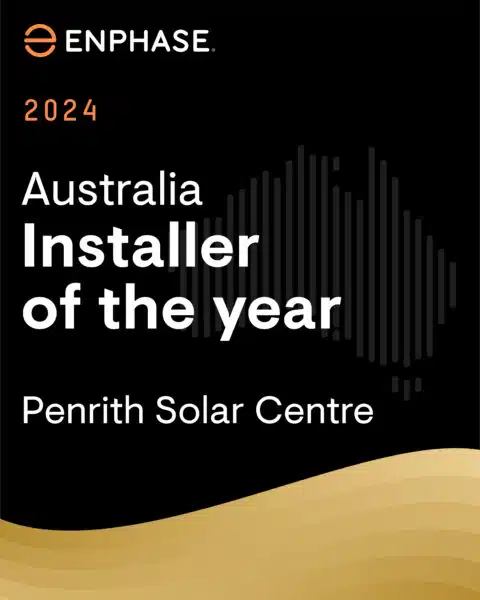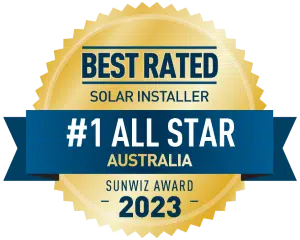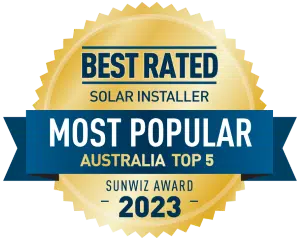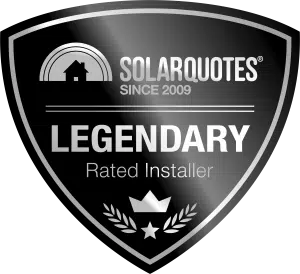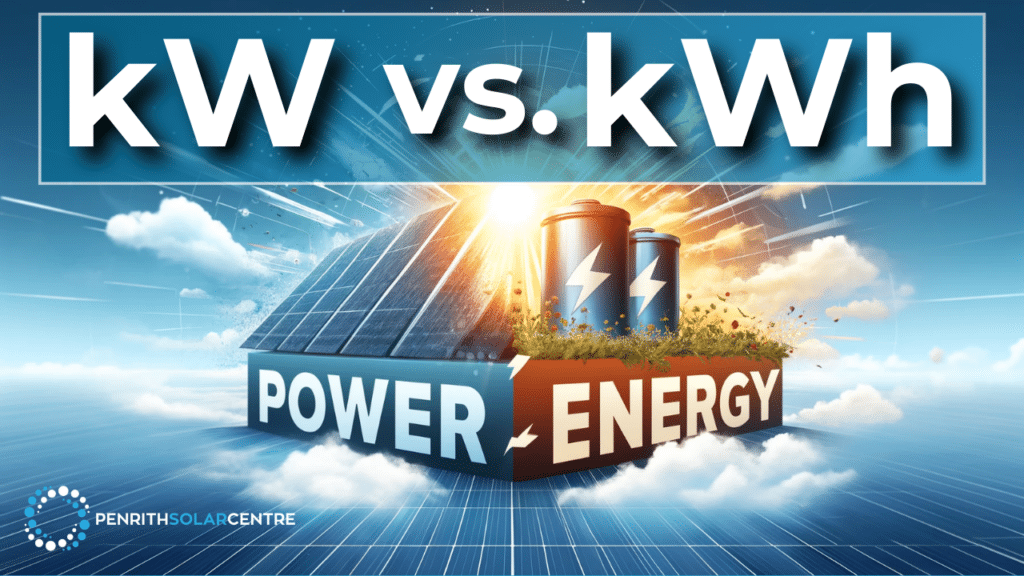
On your electricity bill, you’ll see that your energy usage is measured in kilowatt-hours (kWh). And when you reach out to a solar consultant for a free quote (because you’re tired of paying that energy bill we just mentioned) they start talking about the system in terms of kilowatts (kW).
In the solar industry, we use these terms to measure electricity: kilowatt (kW) and kilowatt-hours (kWh). They sound similar, but they represent very different things in solar installations.
At Penrith Solar Centre, we love educating our readers with tips and tricks to maximise their solar system’s efficiency so you can smoke your neighbours in the great race to get Australia to Net Zero by 2050. Understanding the difference between kilowatts and kilowatt-hours is crucial.
In this article, you will learn:
- What’s the Difference Between kW and kWh?
- Understanding Your Solar Needs and Goals
- Why We Shifted Our Solar Mindset from Dollars to kW and kWh.
- Changing the Conversation About Value in Solar Energy
By the end of this article, you’ll know the difference between kilowatts and kilowatt hours, and how understanding this difference will empower you at the start of your solar journey.
What’s the Difference Between kW and kWh?
What is a kilowatt hour and why are you buying so many of them from your energy retailer? If you need kilowatt hours, why are you installing kilowatts of solar panels on your roof? Do you use kilowatts to create kilowatt hours?
Both kW and kWh measure electricity. One is a unit of measurement for power, the other for energy.
Power is electricity in motion, moving from the solar on the roof through a cable to the main switchboard.
Power is water moving through a hose.
Energy is electricity when it’s stored. A solar battery stores energy for later use.
Energy is a bucket full of water.
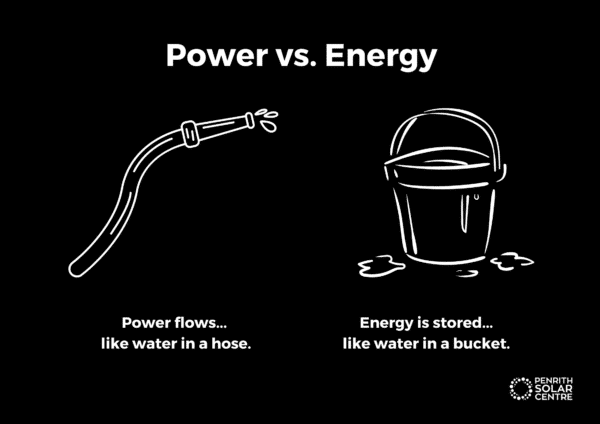
A kW (kilowatt) measures power or potential power. A kilowatt will tell you about the flow of power through a cable (like water through a hose).
A kWh (kilowatt-hour) measures energy. It will tell you how much potential power you have stored to use over time (like water in a bucket).
kW gets you started, but kWh keeps the power flowing.
Tracking your kW and kWh as they fuel your lights and appliances is called consumption monitoring and it’s crucial.
Consumption monitoring provides real-time insights into the performance of your solar system. It allows you to identify places where you might want to spend more or fewer kilowatts or kilowatt hours.
If you’re interested in learning more about how awareness of kW and kWh affects your budget, you might want to check out the following article titled, What is Consumption Monitoring?
Understanding Your Solar Needs and Goals
There are so many ways to achieve a goal. If you want to save money on your electricity bill, you could stop using your air conditioner in the summertime. That will save you money.
But what will your quality of life be for those 3 – 4 months of the year?
We’re not asking you to do that, we’re just illustrating how there are multiple pathways to meeting your energy needs and reaching your energy goals.
It’s important to match your system’s capacity with your energy requirements. Too small, and your system won’t generate enough power. Too big, and you might be paying for more than you need (at the time – it’s true that your needs will probably evolve as electric vehicles start to take over).
It’s all about finding that sweet spot.
If you’re interested in learning more about figuring out your unique energy needs and goals, you might want to check out the following article titled, How Much Solar Do You Need?
Why We Shifted Our Solar Mindset from Dollars to kW and kWh
Shifting your thinking from currency as a resource to energy as a resource will save you money. It’s just a little trick of the mind.
We’ve worked with heaps of customers who only looked at electricity as an expense. They paid their energy bill and understood that turning off the light whenever they left a room made the bill go down slightly.
Shifting our mindset to see ourselves as spending energy rather than dollars changed our thinking.
How many kWh does it take to run your kettle? What about the dishwasher?
By paying attention to how you’re spending kilowatts hours in your home, you see the cost differently.
I’ll say it again in a different way because it’s important: when you take money out of the equation, you understand the value of energy in a new light.
Quantifying a resource allows you to make informed decisions about its use.
If you’re interested in learning more about what you can do to maximise your system’s efficiency, you might want to check out the following article titled, Adding a Battery to a Solar System.
Changing the Conversation About Value in Solar Energy
It’s getting hotter and colder in unpredictable ways. Abnormal weather patterns are part of climate change due to greenhouse gas emissions.
The value of solar is increasing.
When you see energy as a precious resource to be managed, it fosters a culture in our community towards sustainability and environmental stewardship.
Instead of solely focusing on short-term financial gains, we can aim to maximize the amount of free energy generated by our solar systems, reducing our reliance on non-renewable energy sources like the grid.
We begin seeing energy as a valuable resource, independent of its monetary value.
We’re transitioning to a clean energy future, whether we like it or not, and changing how we think about solar energy is key. Energy is more than a commodity – it’s a resource that needs to be managed.
Coal mines in New South Wales are a resource. So is the sun. Sunshine and coal — as resources — generate electricity. Which one do you want to invest in?
However, if you’d prefer a little information about the payback period of solar systems, you might want to check out the following article titled, What is the Payback Period for Solar Panels in Australia?
We’ve also made a nice video that breaks down the cost for solar and a battery:
Don’t Be a Watt Blanket, Learn About kW and kWh!
In the sunny suburbs of Sydney, Australia, harnessing the sun is not just about kW and kWh; it’s about taking control of your energy future. By understanding these terms and their implications, you can make smarter choices for a brighter, more sustainable tomorrow.
At Penrith Solar Centre, we’re committed to helping you create a future powered by kilowatts, kilowatt hours, and a sustainability mindset. It starts with a simple thought: how much am I spending in kilowatt hours to have a cup of tea?
We’re here to guide you through your solar journey as you tap into the giant free energy resource in the sky. We want you to understand every aspect of the solar industry, so you know what questions to ask to get the most bang for your buck.
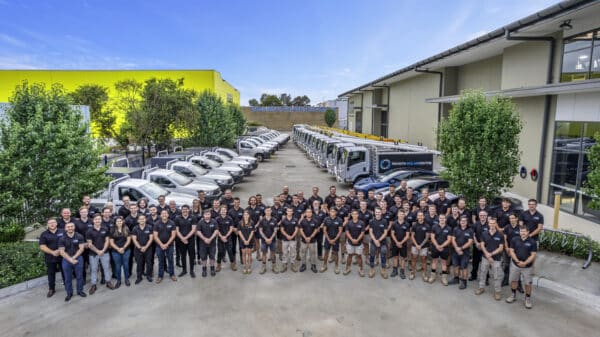
If you’re interested in learning more about what to prioritise when pricing a solar system, you might want to check out the following article titled, How to Shop for Your Solar System.
